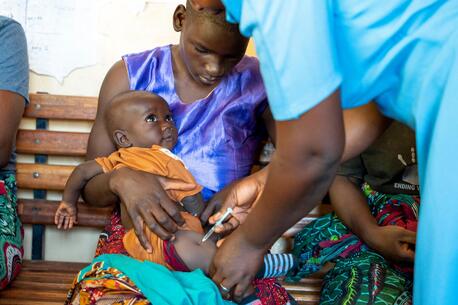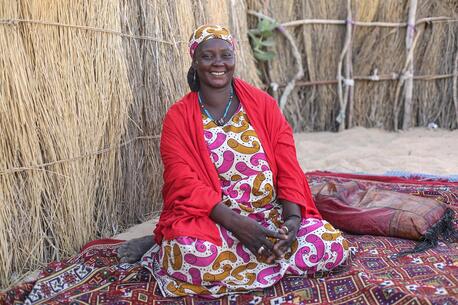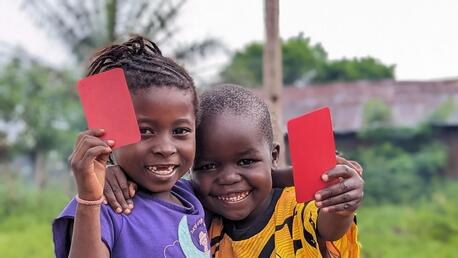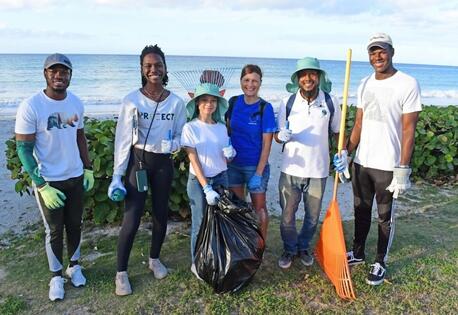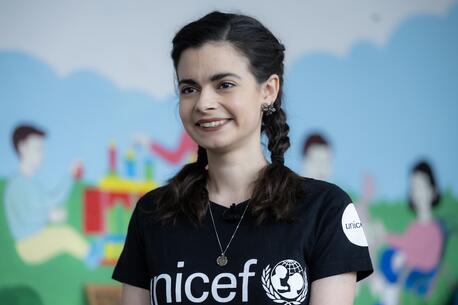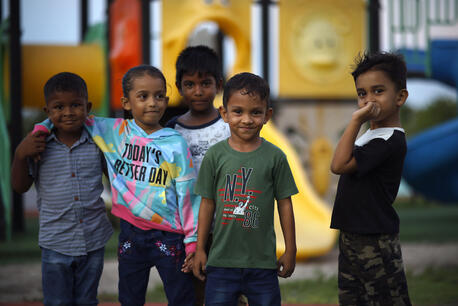
UNICEF in the Maldives
Climate change is an existential threat to the Maldives. UNICEF engages youth and works with partners across sectors to help spur action toward building climate resilience, while strengthening social services to improve the lives of children — and protect their futures.
How UNICEF is helping children in the Maldives
The Maldives is an upper-middle-income small island developing state in the Indian Ocean, its northernmost atoll roughly 370 miles southwest of India. It is one of the most geographically dispersed, with a population of roughly 557,000 people across its 187 inhabited islands.
Tourists know the Maldives as an island paradise, with gorgeous beaches and a relaxed vibe. And Maldivians are proud of their home.
They are also extremely worried about their future.
The impacts of climate change are of grave concern. Despite considerable economic and social progress, inequalities persist. Ensuring adequate health and social services for families living in small communities scattered across the archipelago remains challenging. Malé, one of the most densely populated capitals in the world, wrestles with overcrowding and other issues related to rapid urbanization.
UNICEF's mission in the Maldives is to support the government's strategy for promoting sustainable development while addressing climate change impacts and reducing disparities to ensure all children can reach their full potential.
"The Maldives has won the fight for child survival," says Edward Addai, UNICEF Representative in the Maldives. "The question now is, how can we make sure every child in the Maldives can thrive? How do we empower them to fight for a better future?"
With a staff of less than 20, UNICEF works with partners across all sectors to spur investment, strengthen cross-island collaboration and otherwise advance solutions that improve children's lives.
Seven flagship initiatives for the country office focus on positive parenting; skilling youth for innovation and entrepreneurship; supporting their mental health and tackling substance abuse; enabling climate-smart and climate-resilient actions; fostering supportive island communities; leveraging innovation and technology for scale; and developing and engaging young people.
A focus on climate change
A big focus for UNICEF Maldives is supporting the country's response to climate change — supporting climate education, youth leadership and engagement, and building partnerships that drive climate action that also generates economic opportunity and propels today's youth toward a better future.
For Maldivians, the climate crisis is an existential crisis. Like other small island developing states, their very survival depends on the rest of the world — the major contributors to global warming — curbing their greenhouse gas emissions.
"We know from the science that the baselines of nature and biodiversity are shifting," Sabra Noordeen, the government-appointed Special Envoy for Climate Change said in a recent interview with UNICEF USA. "Our coral reefs may not recover if global temperature rise goes above 1.5 degrees. We face erosion, we face an increase in the frequency and intensity of storms and tidal surges. We face challenges in coastal protection. Without a concerted push for climate action, we risk the wonders [of the Maldives] being lost forever."
Many livelihoods are tied to coral reef health. A depletion of local fisheries and the loss of already limited farmland to erosion threatens food security; with increased dependency on imports comes rising food prices.
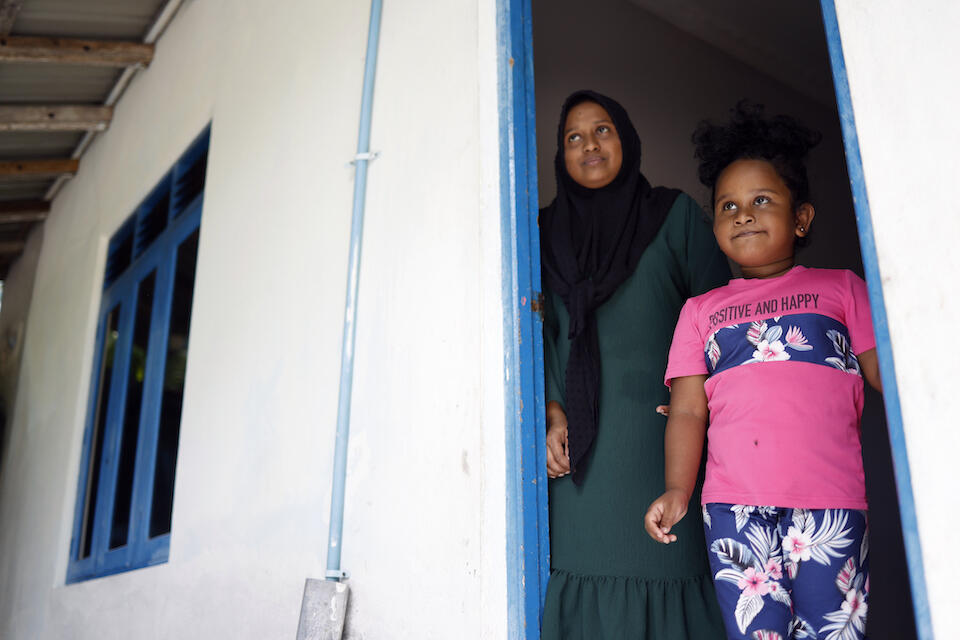
UNICEF supports local efforts to adapt to and/or mitigate the impacts of climate change while at the same time helping to amplify the country's call for help from the rest of the world alongside other small island developing states.
Youth participation and leadership is considered essential on both fronts.
Emphasizing climate education as the foundation for climate action
UNICEF advocates for and supports efforts by the Maldives' Ministry of Education to fully integrate climate education as part of the national curriculum — important for ensuring that the next generation of government, business and civil society leaders are sensitized to climate issues and prioritize adaption and mitigation.
Working directly with schools and community-based organizations, UNICEF looks to engage students and support youth-led climate initiatives. Young people in the Maldives are often the ones leading the charge when it comes to cleaning up the beaches or conserving the coral reefs. A ban on single-use plastics, for example, was started by middle-schoolers.
UNICEF also works with government leaders and other partners to create opportunities for young people outside of school to design and develop innovative solutions to climate change impacts.
Supporting youth agency and participation — critical in climate fight
UNICEF regularly creates platforms for young people in the Maldives to speak out on climate issues and advocate for action. These efforts align with the government's commitment to involving children and young people — those most affected by the climate crisis — in climate negotiations and decisions.
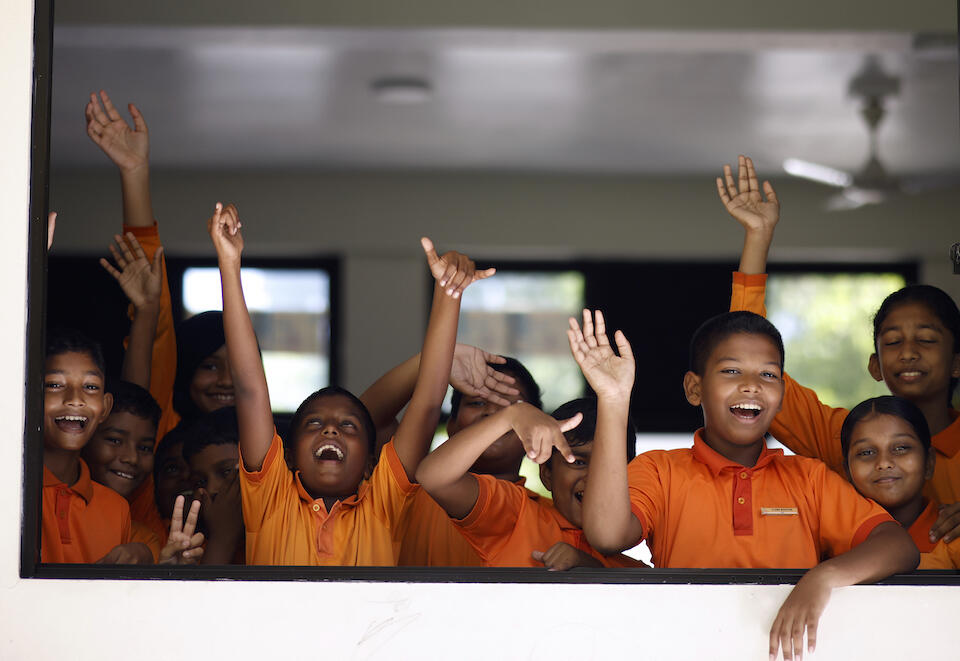
An annual National Youth Conference on Climate Action, hosted by UNICEF, invites young people from dozens of different island communities to come together and share their projects and ideas for tackling environmental challenges. UNICEF then helps to amplify those voices; youth recommendations developed at the conference are then presented to world leaders at COP (Conference of the Parties), the UN's global climate summit.
“It is the young people who are the force for good and force for change," Addai said to delegates and participants at the 2023 youth conference in October. "I see young people driving the climate agenda and doing things to fight against climate change. They can do more, and they can do better, and UNICEF is here to help them in this journey."
Equipping youth with skills to thrive in a blue and green economy
Another big priority for UNICEF is to help youth acquire skills as budding innovators and entrepreneurs, and to otherwise prepare them for future jobs in a green — and blue — economy.* Partnering with local training institutes to offer courses in, say, installing, operating and maintaining solar power systems would help address the relatively high rate of youth unemployment while also helping to diversity the Maldivian economy, which is overly dependent on tourism.
UNICEF-supported programs promoting positive parenting emphasize the importance of education, including making sure children complete secondary school — considered essential for building a green- and blue-skilled workforce.
Helping schools, water systems become climate resilient
UNICEF is committed to helping ensure that essential systems and services that children in the Maldives depend on to survive and thrive are climate smart. To that end, UNICEF collaborates with local governments and other partners to help advance climate adaptation and mitigation measures, often providing technical expertise.
For example, UNICEF and partners helped 11 island communities in Laamu Atoll integrate climate considerations into local development and service delivery strategy plans, which helped facilitate the transition to affordable, reliable and clean energy. Many more schools in Laamu now run on solar energy.
Lack of freshwater is a persistent problem for the country; one of the effects of climate change is increased saline intrusion into the country's few pockets of groundwater. To help maintain safe water supply, and to ease the country's dependency on desalination, which is costly, UNICEF supports efforts to improve and expand systems for harvesting rainwater — collecting it, purifying it and piping it to households. Managing stormwater is another priority.
UNICEF also works with private sector partners to install improved water filtration systems in schools, to ensure equitable access to safe water for all students.
Reducing disaster risks, island by island
Building climate resilience goes hand in hand with disaster risk reduction — another big area of focus for UNICEF in the Maldives. And like other small island states, the Maldives needs to strengthen its defenses against extreme weather.
UNICEF worked with the National Disaster Management Authority (NDMA) and other partners to establish the first Community Emergency Response Teams (CERTs), groups of volunteers who are trained and equipped to respond quickly to a fire, flood or other local emergency. (With island communities so spread out, it can take some time for the NDMA to arrive on the scene when disaster strikes.)
The success of that initial effort prompted the government to commit to creating a CERT for every inhabited island. UNICEF continues to provide equipment and basic training for CERT volunteers, most of whom are young.
UNICEF also helps ensure youth participation in ongoing island disaster management planning, while continuing to work at the national level to integrate climate change adaptation and disaster risk reduction into country-wide environmental sector policies.
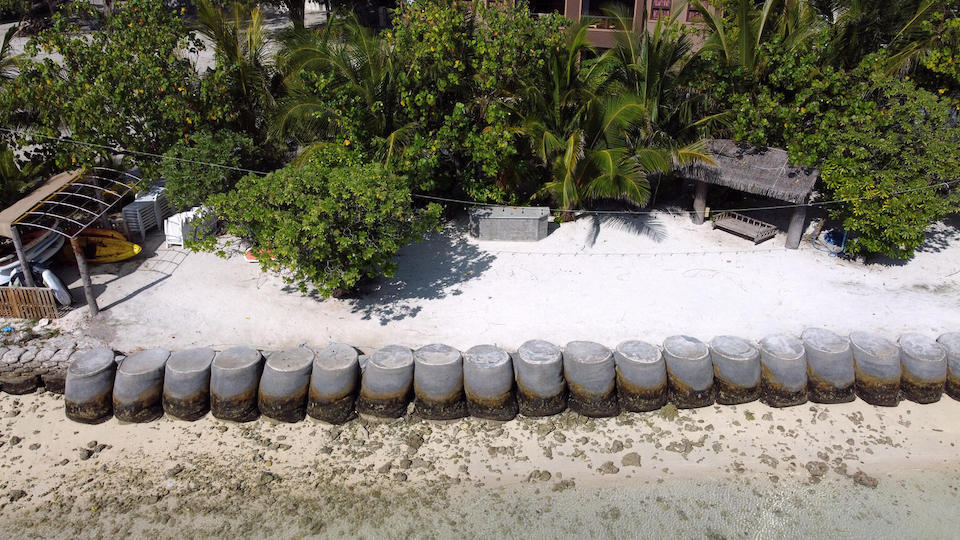
Supporting children's mental health
The need to strengthen support for children's mental health in the Maldives became increasingly apparent during the COVID-19 pandemic. UNICEF is committed to designing and rolling out a system of mental health services and support for young Maldivians that is better integrated across communities, schools and the country's health system.
Recognizing the important role teachers play, UNICEF works in schools to help ensure teachers are equipped to support students — by offering space and opportunity for self-expression, providing psychological first aid if needed, detecting signs of trauma and making timely referrals for professional services.
Other priorities for UNICEF's work in this area include helping adolescents learn skills for self-care, self-regulation and mental well-being. Through the positive parenting program, UNICEF also aims to build the capacity of parents and caregivers to provide supportive environments for young people.
Leveraging innovation and technology for scale
The Maldives has a high level of internet connectivity and digital literacy, particularly among young people. UNICEF is committed to helping the country harness these advantages in order to help accelerate innovative solutions to issues affecting children.
Ideas include developing mobile apps to report and respond to cases of violence against children, and using data analytics and artificial intelligence to improve diagnosis and treatment of mental health conditions in children.
UNICEF works in over 190 countries and territories to create an equitable world where children are healthy, educated, protected and respected. Learn more about what UNICEF does.
Support UNICEF's mission for children. Donate today.
*The blue economy refers to sustainable use of marine and coastal resources. The green economy refers more broadly to economies that reduce environmental risks and ecological scarcities, typically focusing on energy, transport, agriculture and forestry.

